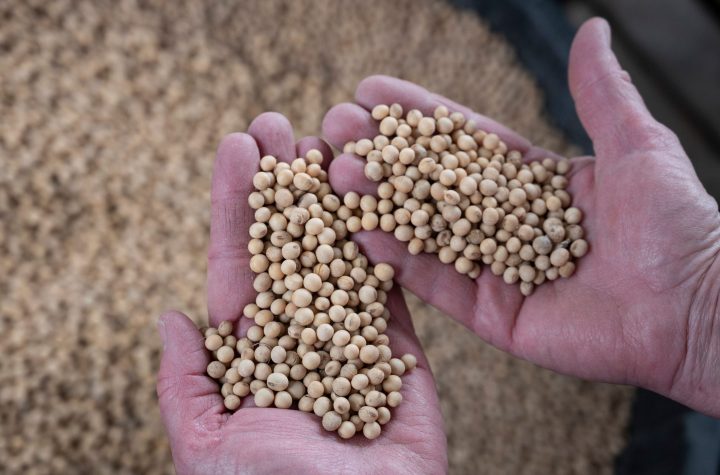
Farmers hoped for a trade deal. Instead, tariffs went up
Farmers hoped for a trade deal. Instead, tariffs went up

The U.S. and China could have struck a deal this week, putting an end to the longstanding trade war between the world’s two largest economies.
Instead, President Trump raised tariffs on more than $200 billion worth of Chinese imports. The rate was raised from 10% to 25%, sending shock though the stock market.
U.S. agriculture has been hit particularly hard by trade tensions. American farmers have been paying retaliatory tariffs to China for soybeans and other crops since last year.
Brian Duncan, who farms hogs, corn and soybeans, is the vice president of the Illinois Farm Bureau. He sat down with the Marketplace host Kai Ryssdal to discuss how trade issues could put many farmers out of business.
“We’ve been given a lot of promises on trade deals and, so far, nothing. Promises don’t pay the bills.”
Brian Duncan, farmer & vice president of the Illinois Farm Bureau
There’s a lot happening in the world. Through it all, Marketplace is here for you.
You rely on Marketplace to break down the world’s events and tell you how it affects you in a fact-based, approachable way. We rely on your financial support to keep making that possible.
Your donation today powers the independent journalism that you rely on. For just $5/month, you can help sustain Marketplace so we can keep reporting on the things that matter to you.


















